Friday, February 28, 2025
Sunday, February 23, 2025
What Joseph Knew that Enabled Him to Move Past the Past and Prosper
What Joseph Knew that Enabled Him to Look Past the Past and Prosper
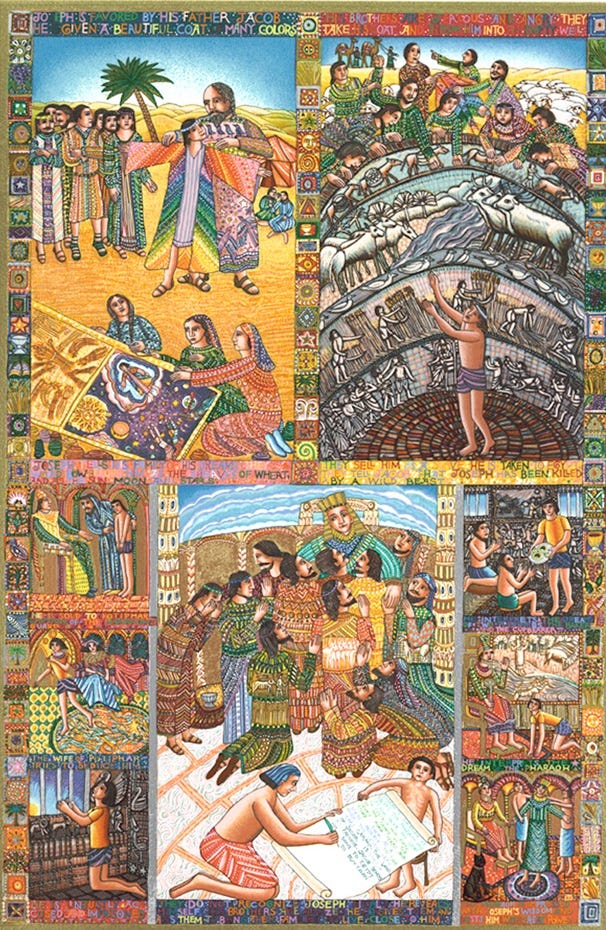
Joseph said to his brothers, “I am Joseph. Is my father still alive?” But his brothers could not answer him, so dismayed were they at his presence.
Then Joseph said to his brothers, “Come closer to me.” And they came closer. He said, “I am your brother, Joseph, whom you sold into Egypt. And now do not be distressed or angry with yourselves because you sold me here, for God sent me before you to preserve life. For the famine has been in the land these two years, and there are five more years in which there will be neither plowing nor harvest. God sent me before you to preserve for you a remnant on earth and to keep alive for you many survivors. So it was not you who sent me here but God; he has made me a father to Pharaoh and lord of all his house and ruler over all the land of Egypt. Hurry and go up to my father and say to him, ‘Thus says your son Joseph, God has made me lord of all Egypt; come down to me; do not delay. You shall settle in the land of Goshen, and you shall be near me, you and your children and your children’s children, as well as your flocks, your herds, and all that you have. I will provide for you there, since there are five more years of famine to come, so that you and your household and all that you have will not come to poverty.’
And he kissed all his brothers and wept upon them, and after that his brothers talked with him.
My Notes

1. Joseph knew that people could change.
He had; his brothers may have.
We are not the same people we used to be. That is true of others as well.

2. Joseph knew that God could take what people mean for evil and use it for good.
The intention of evil is not the last word about how the events of our life will pave the way for the future.

3. Furthermore, Joseph knew that all evil has an expiration date.
The old passes. The new comes.
Evil deeds and people pass away.
Psalm 37:1–11, New Revised Standard Version Updated Edition
Do not fret because of the wicked;
do not be envious of wrongdoers,
for they will soon fade like the grass
and wither like the green herb.
Trust in the Lord and do good;
live in the land and enjoy security.
Take delight in the Lord,
and he will give you the desires of your heart.
Commit your way to the Lord;
trust in him, and he will act.
He will make your vindication shine like the light
and the justice of your cause like the noonday.
Be still before the Lord, and wait patiently for him;
do not fret over those who prosper in their way,
over those who carry out evil devices.
Refrain from anger and forsake wrath.
Do not fret — it leads only to evil.
For the wicked shall be cut off,
but those who wait for the Lord shall inherit the land.
Yet a little while, and the wicked will be no more;
though you look diligently for their place, they will not be there.
But the meek shall inherit the land
and delight themselves in abundant prosperity.
Psalm 37:39–40, New Revised Standard Version Updated Edition
The salvation of the righteous is from the Lord;
he is their refuge in the time of trouble.
The Lord helps them and rescues them;
he rescues them from the wicked and saves them
because they take refuge in him.
4. Joseph knew that the big picture was more important than any small flaws.
Flaws do not define outcomes or the long view. What is temporarily a hindrance, may be the gateway to new possibilities.

5. Joseph knew that the people God really uses rise above pettiness.
That was a major factor in his success. In every bad situation, Joseph bloomed wherever he was planted.
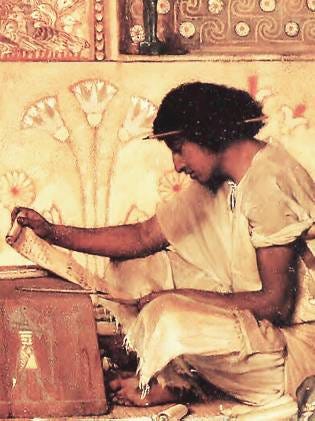
6. Joseph somehow knew that there was a different sort of life to be lived.
Later on, Jesus would expand upon this lesson, calling us to its radical implications.
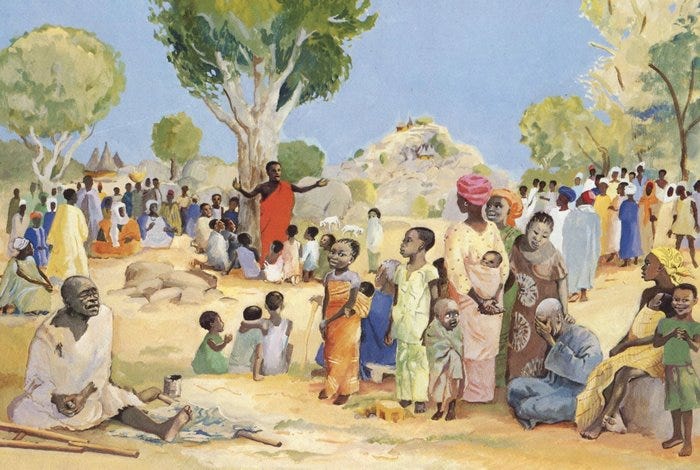
Luke 6:27–38, New Revised Standard Version Updated Edition
“But I say to you who are listening: Love your enemies; do good to those who hate you; bless those who curse you; pray for those who mistreat you. If anyone strikes you on the cheek, offer the other also, and from anyone who takes away your coat do not withhold even your shirt. Give to everyone who asks of you, and if anyone takes away what is yours, do not ask for it back again. Do to others as you would have them do to you.
“If you love those who love you, what credit is that to you? For even sinners love those who love them. If you do good to those who do good to you, what credit is that to you? For even sinners do the same. If you lend to those from whom you expect to receive payment, what credit is that to you? Even sinners lend to sinners, to receive as much again. Instead, love your enemies, do good, and lend, expecting nothing in return. Your reward will be great, and you will be children of the Most High, for he himself is kind to the ungrateful and the wicked. Be merciful, just as your Father is merciful.
“Do not judge, and you will not be judged; do not condemn, and you will not be condemned. Forgive, and you will be forgiven; give, and it will be given to you. A good measure, pressed down, shaken together, running over, will be put into your lap, for the measure you give will be the measure you get back.”

7. Joseph knew that God gets the last word and it is Life
The doctrine of resurrection blows all preliminary assessments of success and failure out of the water.
It is the ultimate game-changer.
1 Corinthians 15:35–38, New Revised Standard Version Updated Edition
But someone will ask, “How are the dead raised? With what kind of body do they come?” Fool! What you sow does not come to life unless it dies. And as for what you sow, you do not sow the body that is to be but a bare seed, perhaps of wheat or of some other grain. But God gives it a body as he has chosen and to each kind of seed its own body.
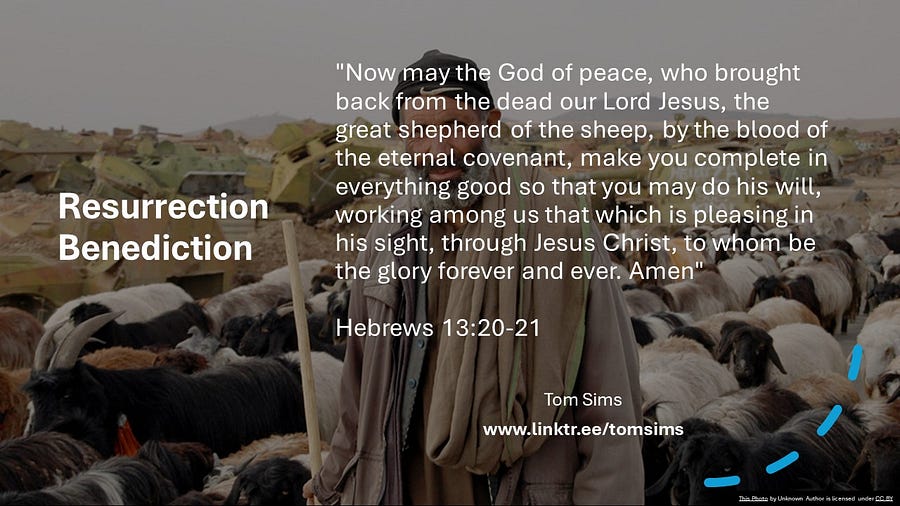
1 Corinthians 15:42–50, New Revised Standard Version Updated Edition
So it is with the resurrection of the dead. What is sown is perishable; what is raised is imperishable. It is sown in dishonor; it is raised in glory. It is sown in weakness; it is raised in power. It is sown a physical body; it is raised a spiritual body. If there is a physical body, there is also a spiritual body. Thus it is written, “The first man, Adam, became a living being”; the last Adam became a life-giving spirit. But it is not the spiritual that is first but the physical and then the spiritual. The first man was from the earth, made of dust; the second man is from heaven. As one of dust, so are those who are of the dust, and as one of heaven, so are those who are of heaven. Just as we have borne the image of the one of dust, we will also bear the image of the one of heaven.
What I am saying, brothers and sisters, is this: flesh and blood cannot inherit the kingdom of God, nor does the perishable inherit the imperishable.
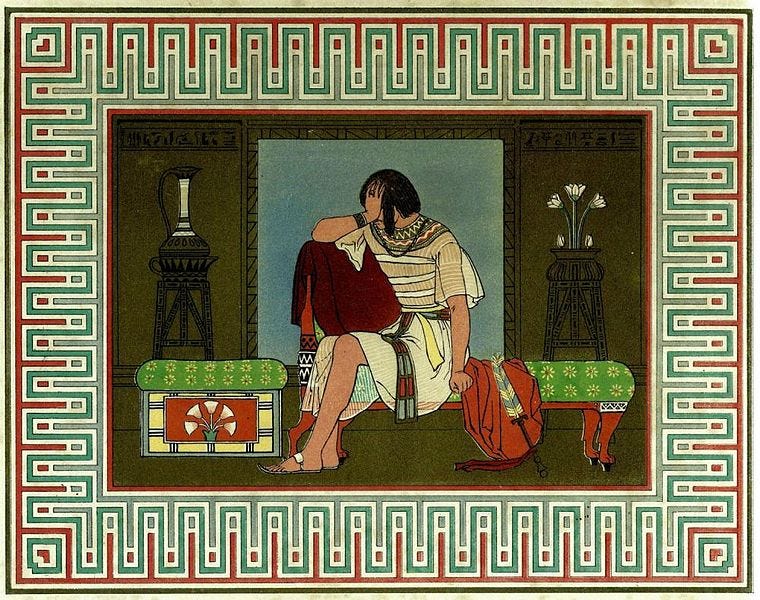
What will you do with this?
Tuesday, February 18, 2025
Sunday, February 16, 2025
Blessings and Curses
Blessings and Curses
You might say that blessings and curses are two different experiences of the same reality. The ultimate reality is God, revealed, present, speaking, acting in history, confronting us in our lives. The experience of God is how we respond.
That determines whether an encounter with God is a blessing or a curse.
Jeremiah 17:5-10
Those who trust the Lord are like trees
Thus says the LORD: Cursed are those who trust in mere mortals and make mere flesh their strength, whose hearts turn away from the LORD. They shall be like a shrub in the desert and shall not see when relief comes. They shall live in the parched places of the wilderness, in an uninhabited salt land.
Blessed are those who trust in the LORD, whose trust is the LORD. They shall be like a tree planted by water, sending out its roots by the stream. It shall not fear when heat comes, and its leaves shall stay green; in the year of drought it is not anxious, and it does not cease to bear fruit.
The heart is devious above all else; it is perverse-- who can understand it? I the LORD test the mind and search the heart, to give to all according to their ways, according to the fruit of their doings.
So, we have trees and bushes here.
Trees trust God. Bushes trust mortals.
Psalm 1
Happy are those
who do not follow the advice of the wicked
or take the path that sinners tread
or sit in the seat of scoffers,
but their delight is in the law of the Lord,
and on his law they meditate day and night.
They are like trees
planted by streams of water,
which yield their fruit in its season,
and their leaves do not wither.
In all that they do, they prosper.
The wicked are not so
but are like chaff that the wind drives away.
Therefore the wicked will not stand in the judgment
nor sinners in the congregation of the righteous,
for the Lord watches over the way of the righteous,
but the way of the wicked will perish.
Here, we have trees that prosper and trees that perish.
One trusts and delights in God's ways and words. The other in the counsel of the wicked.
What does Jesus say?
Luke 6:17-26
He came down with them and stood on a level place with a great crowd of his disciples and a great multitude of people from all Judea, Jerusalem, and the coast of Tyre and Sidon. They had come to hear him and to be healed of their diseases, and those who were troubled with unclean spirits were cured. And everyone in the crowd was trying to touch him, for power came out from him and healed all of them.
Then he looked up at his disciples and said:
“Blessed are you who are poor,
for yours is the kingdom of God.
“Blessed are you who are hungry now,
for you will be filled.
“Blessed are you who weep now,
for you will laugh.
“Blessed are you when people hate you and when they exclude you, revile you, and defame you on account of the Son of Man. Rejoice on that day and leap for joy, for surely your reward is great in heaven, for that is how their ancestors treated the prophets.
“But woe to you who are rich,
for you have received your consolation.
“Woe to you who are full now,
for you will be hungry.
“Woe to you who are laughing now,
for you will mourn and weep.
“Woe to you when all speak well of you, for that is how their ancestors treated the false prophets.
For Jesus, there are the simple folks who are coming to him with real life problems and trusting him to bring them healing and meaning. On the other hand, there are the self sufficient ones, who are avoiding their own vulnerabilities and rejecting any feeling for the poor and broken of the world.
"I am fine. Why aren't you?"
Is there a common thread?
The Number two is in common.
There are two lenses through which we view our realities, desires, and values.
“… his delight is in the law of the LORD; and in his law doth he meditate day and night.” – Psalm 1:2 (KJV)
Delight and meditation are the two greatest determinants of a healthy digestion of scripture in our lives. They enable us to allow the Word of God to get into every area of our lives and transform us into strong, stable followers of Jesus.
We stand strong, bring forth fruit, experience ongoing vitality, and prosper in those things that we are prompted by the Spirit of God to do.
When we delight in God’s Word, we hunger and thirst for it. We are drawn toward it. We crave it and enjoy it. We find warmth and light in it. We find ourselves getting excited about new insights and glimpses into the heart of God.
That is how we take it in.
Then, we mediate upon it. We receive it and we take a stroll with it, mulling it over, praying about it, and applying it to our lives.
Oh to be so captivated by a single verse in a day that it grips the soul and sinks deeply into our consciousness! If we could live with that morsel of spiritual food for a day and properly assimilate it into our lives, we would be taken to a new plane.
“For the LORD knoweth the way of the righteous.” (KJV)
In our delight and meditation, we are not merely engaging in mental exercise. God is present and aware and He enters into the process.
Open the Word. Let your eyes take it into your heart. Find the joy in what you receive. Then turn it over and over in your thoughts until it marinates your entire being.
You will be blessed.
In today's epistle from 1 Corinthians 15:12-20, there is a great resolution, and it is in the reality of the resurrection of Jesus and the promise of resurrection for his people.
Now if Christ is proclaimed as raised from the dead, how can some of you say there is no resurrection of the dead? If there is no resurrection of the dead, then Christ has not been raised, and if Christ has not been raised, then our proclamation is in vain and your faith is in vain. We are even found to be misrepresenting God, because we testified of God that he raised Christ—whom he did not raise if it is true that the dead are not raised. For if the dead are not raised, then Christ has not been raised. If Christ has not been raised, your faith is futile, and you are still in your sins. Then those also who have died in Christ have perished. If for this life only we have hoped in Christ, we are of all people most to be pitied.
But in fact Christ has been raised from the dead, the first fruits of those who have died.
Let’s end where we began:
You might say that blessings and curses are two different experiences of the same reality. The ultimate reality is God, revealed, present, speaking, acting in history, confronting us in our lives. The experience of God is how we respond.
That determines whether an encounter with God is a blessing or a curse.
That is a choice.